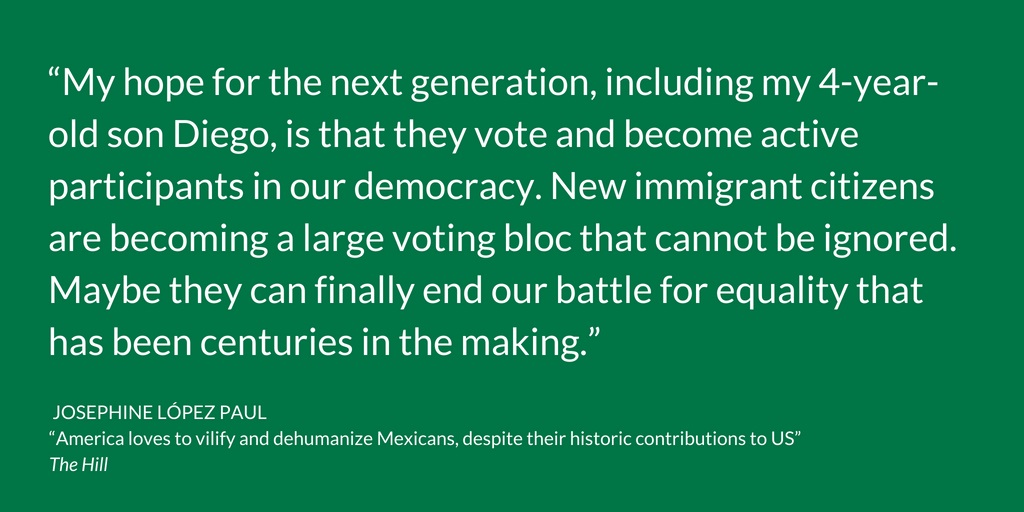The SeaGlass Carousel, located downtown in Battery Park, pays homage to the New York Aquarium, which was previously located at this location and at one point welcomed 2.5 million visitors annually before closing in 1941. The 2,575 square foot pavilion, modeled after a nautilus, lacks the traditional center pole and is instead turned by four turntables housed below the floor. Each massive fiberglass fish was custom designed and fabricated and the bright and fantastic color-changing LED light fixtures (along with an integrated audio system) is meant to evoke the bioluminescence found deep in the ocean. The results are mesmerizing. Seriously, we could have watched it all night.
SeaGlass Carousel
Priority Dates Q&A
Once foreign nationals decide they want to stay in the United States permanently and start talking to an immigration attorney or researching the process themselves, there is a pretty good chance the term “priority date” will come up. What this term means and why it is so important to figuring out the timing involved in a Green Card case can be confusing. There are often many questions surrounding how one obtains a priority date and all the timing issues that follow. This post aims to explain how the process works, although many people may prefer not to know how the sausage is made (if you will). Tracking the backlog of cases can be painfully frustrating—especially if a foreign national’s visa category is one that is excessively backlogged. But for those who wish to know the reason behind the delays, here are some of the most frequently asked questions.
Read moreUSCIS: “DHS Proposes to Remove the International Entrepreneur Rule”
The Department of Homeland Security (DHS) has proposed a rule that would end the Obama-era International Entrepreneur Rule (IE Final Rule), which allows certain foreign entrepreneurs to be considered for parole to come temporarily to the US to develop and build companies. To qualify, entrepreneurs must demonstrate that they would provide a significant public benefit with rapid job growth and creation by submitting substantial evidence including proof of significant capital investment from US investors with established records of successful investments, or if they have obtained significant awards or grants from specific federal, state, or local governments. The parole would provide these entrepreneurs temporary stay of up to thirty months, with the option to extend an additional thirty months, so that the entrepreneur can oversee the company’s growth in the US.
Read moreBoth Identities
The Twins
OSGEMEOS, translated as “The Twins," are Brazilian artists Gustavo and Otavio Pandolfo, who have worked together since birth. They grew up in the district of Cambuci (SP) and developed their own artistic language. With their family's encouragement and the influence of hip hop culture in Brazil in the 1980s, they found a "direct connection to their dynamic and magical world and a way to communicate with the public." In this piece on 14th Street in Manhattan, OSGEMEOS depicts break dancers from the 1980s.
Employment-Based Green Card Options: An Overview
There are a variety of ways to become a lawful permanent resident through employment in the United States. The five main employment-based Green Card categories are: EB-1 (for foreign nationals with extraordinary ability, outstanding professors/researchers, or multinational executives/managers); EB-2 (for foreign nationals holding an advanced degree or its equivalent, or foreign nationals with exceptional ability); EB-3 (for skilled workers, professionals, or other workers—as defined within the immigration regulations); EB-4 (for special immigrants—as defined within the immigration regulations); and EB-5 (for immigrant investors). Under each category, there are several ways to pursue a Green Card.
Read moreUnivision: “In Trump era, immigration lawyers recommend everyone carry ID, no matter your status”
After a Border Patrol agent questioned two US citizens in Montana because they were speaking Spanish, legal experts are now recommending that naturalized citizens, legal permanent residents, and undocumented individuals carry identification with them in the event that it is requested by authorities. While the women were able to demonstrate to the officer that they were US citizens and were not arrested, many immigration advocates found the encounter disturbing. Jaime Barrón, an immigration attorney in Dallas, Texas, says that “simply speaking in another language cannot be an illegal act, that could be discrimination.”
Read moreUSCIS: Processing Error for Form I-751, Petition to Remove Conditions on Residence
US Citizenship & Immigration Services (USCIS) says that due to a processing error, on May 4, 2018, the agency mailed a number of biometric services appointment notices with incorrect Application Support Center (ASC) locations to petitioners who filed Form I-751, Petition to Remove Conditions on Residence. These affected notices have a date of May 4, 2018 and a case type of “I-751 – PETITION TO REMOVE CONDITIONS ON RESIDENCE.” Theses notices instruct petitioners to appear for their biometric services appointments beginning the week of May 21, 2018, at ASCs located out of the normal geographic area.
Read more




